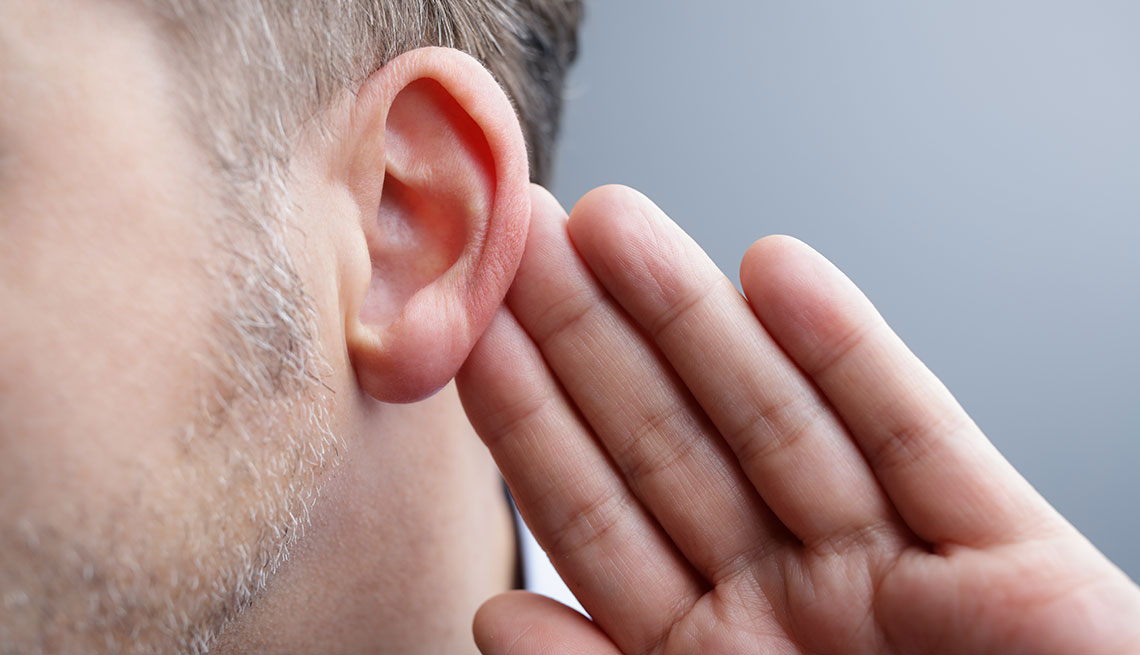AARP Hearing Center
Just as it becomes more difficult to see clearly at a close distance or to have perfect recall of names as you get older, certain hearing changes become noticeable as the decades pass.
“If you live long enough, you’re going to suffer some hearing loss — it’s part of the normal aging process,” says Sean McMenomey, M.D., a professor of otolaryngology, head and neck surgery and neurological surgery at the New York University Langone Medical Center. One study, published in the March 1, 2017, issue of JAMA Otolaryngology-Head & Neck Surgery, found that while hearing loss is declining slightly among adults between the ages of 20 and 69, age is the biggest risk factor for hearing impairment — 39 percent of adults ages 60 to 69 have trouble hearing speech clearly.
Age-related hearing loss, called presbycusis, occurs gradually, usually in both ears. When the decline begins depends partly on genetic factors and partly on long-term noise exposure, McMenomey says. “Noise exposure that you had as a kid is the gift that keeps on giving — it cannot be reversed.”
But a decline in hearing also can develop from age-related changes in the inner ear or changes in the nerve pathways from the ear to the brain, according to the National Institute on Deafness and Other Communication Disorders. Certain medical conditions such as high blood pressure, thyroid problems and diabetes can exacerbate the decline, along with medications such as chemotherapy drugs and some antibiotics.





































































